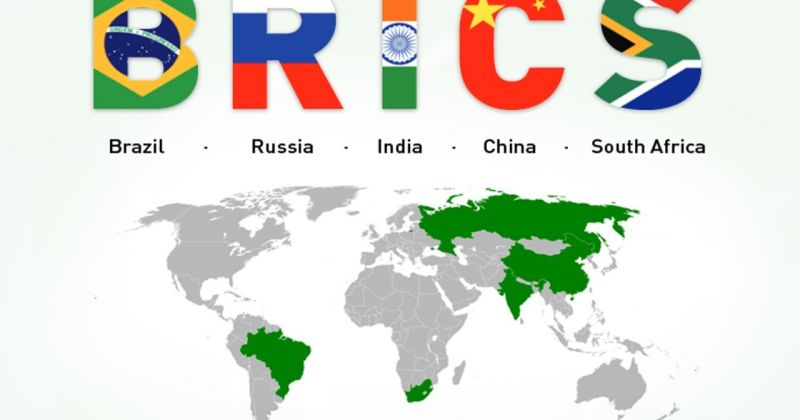The World Trade Organization is not an institution that was created at the Bretton Woods Conference, in 1944. But it is possible to say that it is the result of this process, to the extent that it is a direct result of the General Agreement on Tariffs and Trade (called GATT), from the so-called Uruguay Round.
This is important to consider because, together with the entire United Nations System, the WTO is one of the great symbols of the multilateral system. Since the end of World War II, States have been seeking the path of multilateralism as their main strategy for international interaction..
The peak of this path occurred in the 1990s. 1990, marked by important international conferences (as Echo-92; Vienna Conference on Human Rights; Cairo conference on population and development…). Even if it's not global, of equal importance is the emergence of the European Union, through the Maastricht Treaty (1992).
When we look at the past from the present, what we can see is that the system was not as multilateral as it seemed. When we look specifically at the case of the GATT/WTO system, if we focus on the evolution of official participants (member states) and the agendas handled, we can see that it is an effort to organize the world based on very localized premises and interests.
important players of the international system were not part of most . Russia applied for its entry into 1995 but only became a member in 2012. China only becomes a member in 2016. Although China has a greater economic weight, it is not possible to ignore that Russia has political relevance and that the WTO cannot be reduced only to the trade issue. It is a structuring organization of the international system, including the extent of influence.
The truth is that the multilateral system, so well represented by the UN and the WTO, served to consolidate the interests of the countries they led., he was promoted as the most suitable and should be observed by all.
From the decade of 2000 the scenery started to change. Perhaps the biggest change came as other powers began to play within multilateral rules., but forcing the result to your side. Now, what we are seeing is a movement of questioning this system due to the non-attendance of previous interests.
The Trump administration's questioning of various organizations of the United Nations System (with special emphasis on the World Health Organization) and the WTO should not be interpreted as something isolated from the President of the United States. This questioning is profound and is related to the view that one has on the “utility” of these organizations.
The view of US representatives Peter Defazio and Frank Pallone (reproduced below), who proposed legislation for the withdrawal of the United States from the WTO, makes explicit the view that the WTO “exported jobs”.
For a while we seem to have forgotten that the multilateral system was not an end in itself., but rather a means used by some countries to concentrate and project power. We believe that the multilateral system was better for everyone, but we didn't really ask ourselves how that would happen.
I am aware that the costs of negotiation and insertion in a bilateral international system are high. But neither should we be so innocent as not to realize what is actually at stake right now..
Chair Peter Defazio and Frank Pallone, Jr introduce legislation to withdraw the United States from the World Trade Organization
May 12, 2020 Press Release
Chair Peter DeFazio (OR-04) and Chair Frank Pallone (NJ-06) today introduced legislation to withdraw the United States from the World Trade Organization (WTO).
“The WTO has been a disaster for the United States. With millions of jobs exported, ballooning trade deficits, and the erosion of U.S. sovereignty, the WTO has a 25-year track record of putting the profits of multinational corporations above the interests of American workers,” said Chair DeFazio. “COVID-19 has exposed how the hemorrhaging of U.S. jobs, particularly manufacturing jobs, to China and other countries has significantly undermined our ability to respond to the global pandemic. The United States needs to withdraw from the WTO to strengthen and protect our manufacturing base, public health and safety, industry and jobs, U.S. sovereignty, and the environment.”
“After 25 years of participation in the World Trade Organization (WTO), our workers have seen little to no benefits for their families and have instead watched as the WTO gives countries like China protections to use tariffs and other unfair trade practices to its advantage,” said Chair Pallone. “It is time for the United States to withdraw from this institution and start prioritizing American workers over international corporations. This resolution is an important first step in the withdrawal process and I hope my colleagues will join Chairman DeFazio and myself with their support.”
The Uruguay Round Agreements Act (P.L. 103-465), the statutory basis for U.S. WTO membership, specifies that Congress’s approval of the WTO agreement shall cease to be effective if Congress enacts a joint resolution calling for withdrawal. Congress may vote every five years on withdrawal, with the next possible consideration in 2020.
The House most recently voted to withdraw from the WTO in 2005, with both DeFazio and Pallone voting in support of that resolution. The Senate has never voted on WTO withdrawal.
A 2018 Economic Policy Institute report found that China’s entry into the WTO has caused the U.S. to shed 3.4 million jobs since 2001, with nearly 75 percent of jobs lost in the manufacturing sector.
originally published in World map (www.mapamundi.org.br)


